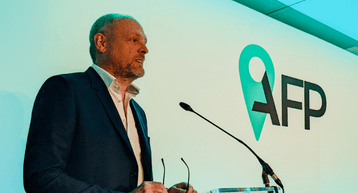The Association of Fleet Professionals (AFP) is enhancing its offering to members by committing to launch new best practice guides and white papers from its seven specialist focus area committees.
Paul Hollick, chair at the AFP, said that there is so much work put in by committee members and the organisation wants to find more ways of disseminating best practice and guidance to help members and make even more of an impact for fleet managers.
Hollick explained: “Our committees undertake a lot of excellent work in terms of discussions on how to handle new challenges and spread best practice, and much has been achieved by them since the creation of the AFP in 2020.
“These members, who give their time freely, deserve a significant amount of credit.
“However, there is a feeling across the committees that we need to find ways of turning those useful dialogues into documents and actions that can be used by members as part of their fleet strategies and have a wider impact on vehicle operator thinking, right up to government level.”
This new focus from the AFP’s will see the creation of white papers, short guides, and policy statements, as well as a range of objective-based projects that provide new options and guidance for fleets.
There will also be some changes to the AFP’s committee structures.
While the Mega Fleets; Risk and Compliance; Future Mobility; Diversity and Leadership; and Shared Charging groups will all continue as before, the Electric Vehicle, Low Carbon and Alternative Fuels committee will now be called Decarbonisation; and Light Commercial Vehicles will become simply Commercial Vehicles.
The latter alteration has been made in recognition of the fact that some fleet operators want to discuss topics affecting commercial vehicles above 3.5 tonnes.
Additionally, changes are planned that affect how the committees operate, with a core group of fleet managers sitting permanently on each and, except for Mega Fleets, other AFP fleet operator members free to take part as they wish.
Excess charging capacity project
Hollick said: “We believe this will create a more fluid approach that will encourage more inclusive discussions across the committees and allow more fleet managers to make their voices heard within the AFP.”
He pointed to the Shared Charging committee as a good example of what can be achieved in terms of AFP projects.
“We launched this committee at the start of the year and within a few months, we are looking to launch a platform that allows fleets with excess charging capacity to offer it online to fleets that need access to chargers. It’s an exciting development that has genuine utility for electric vehicle operators.
“Not all AFP committees have such a direct remit as shared charging, which was formed to assess the viability of a project of this kind, and it wouldn’t be appropriate for them to all work in the same way.
“However, there’s certainly further scope to create a greater connect between the expertise of the committees and it impact on a wider audience, we believe.”
























Login to comment
Comments
No comments have been made yet.